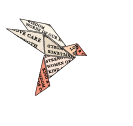
Treasure your friendships
Sherri T.
These were the wise words of Rose, the mother of my friend Ellen.
Rose likely had no idea back then just how meaningful her words actually were. She was speaking about her own life. She felt good when she spent time with friends. They provided vital support when needed. She always felt safe because she knew they were nearby.
Rose had no inkling as to what was to come years later: a growing commentary and conversation about the value of friendships.
Some of it serious: A friend is someone who understands your past, believes in your future and accepts you just the way you are.
Some of it humorous: A friend is someone who knows you well but likes you anyway.
There is a burgeoning volume of research on the significance of friendships and social relationships. Even the academic world has been weighing in with some substantial evidence.
People with strong networks tend to be more successful in their careers and live longer. Public health researchers have found that social connectedness is one of the most powerful factors in determining wellbeing.
The more abundant our networks of friends and the more engaged we are in the community, the less likely we are to experience heart attacks, strokes, depression and premature death.
Individuals who have close friends, pleasant neighbors and supportive co-workers are less likely to face sadness, loneliness and low self-esteem. Seniors involved in clubs, volunteer work and local politics tend to be in better general health than those uninvolved.
In fact, a colleague recently diagnosed with early dementia told me that the doctor strongly recommended three potent medicines: sunshine, exercise and friends. These natural remedies apparently pack a powerful punch.
Social networks are also helpful for work. Friends can provide job-seekers with advice, employment leads and letters of reference. Who you know can be as important as what you know.
Rose had no idea about any of this academic research. She knew only what was true in her life. She knew only from experience, not experiments. Her wise words were rooted in friendship not scholarship.
Sometimes the most profound wisdom comes not from the head but from the heart.
